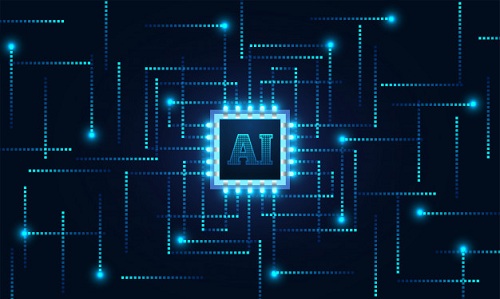Tracking the Transforming AI Chip Industry
Embedded AI can transform a tabletop speaker into a personal assistant; give a robot brains and dexterity; and turn a smartphone into a smart camera, music player, or game console. Traditional processors, however, lack the computational power to support many of these intelligent features. Chipmakers, startups, and capital are taking this opportunity to the market.
Artificial intelligence chips are a class of microprocessors designed for applications including machine learning, machine vision, and artificial neural networks. The artificial intelligence technology helps in minimizing the risks associated with human life in many industry verticals. Growth in the internet of things (IoT) sector and developments in smartphone integration is majorly driving the global market. However, lack of skilled workforce is hindering the growth of the artificial intelligence chip market. Rise in adoption in the developing economies is opportunistic for the market.
The global artificial intelligence chip market was valued at $4,515 million in 2017, and is projected to reach $91,185 million by 2025, growing at a CAGR of 45.4% from 2018 to 2025.
Get Sample on Research Analysis and Growth Strategy –
The key players influencing the artificial intelligence chip market are Intel Corporation, Nvidia Corporation, Nxp Semiconductors N.V., Qualcomm Incorporated, NEC Corporation, Xilinx, Inc., Texas Instruments, Amazon, Qualcomm Incorporated, and Samsung Electronics.
However, dearth of skilled workforce is one of the major restraints of the artificial intelligence chip market. Most of the tasks, such as testing, bug fixing, cloud implementation, and others, are taken over by AI chips; however, the delivery of such tasks lacks essential skillsets.
Intel is putting the finishing touches on a new family of Artificial Intelligence processors including one developed with Facebook’s assistance. It’s a collaboration that analysts say will help Intel make further inroads into AI and better compete against Nvidia and other rivals in the increasingly busy AI chip market.
To understand the origins of the AI technology, this blog chronicles how we got here. It also examines the state of AI chips and what they need to make a real impact on our daily lives by enabling advanced driver assistance systems (ADAS) and autonomous cars. Let’s start at the beginning of AI’s history. As artificial intelligence evolved, it led to more specialized technologies, referred to as Machine Learning, which relied on experiential learning rather than programming to make decisions.
There are a number of benefits AI provides. Among them:
- It adds increasing granularity for speeding up performance and reducing power by varying the accuracy of specific functions through sparser algorithms or data compression.
- It provides the ability to process data as patterns rather than individual bits, effectively raising the abstraction level for computing and increasing the density of the software.
- It allows processing and memory read/writes to be done as a matrix, greatly speeding up those operations.


Comments
Post a Comment